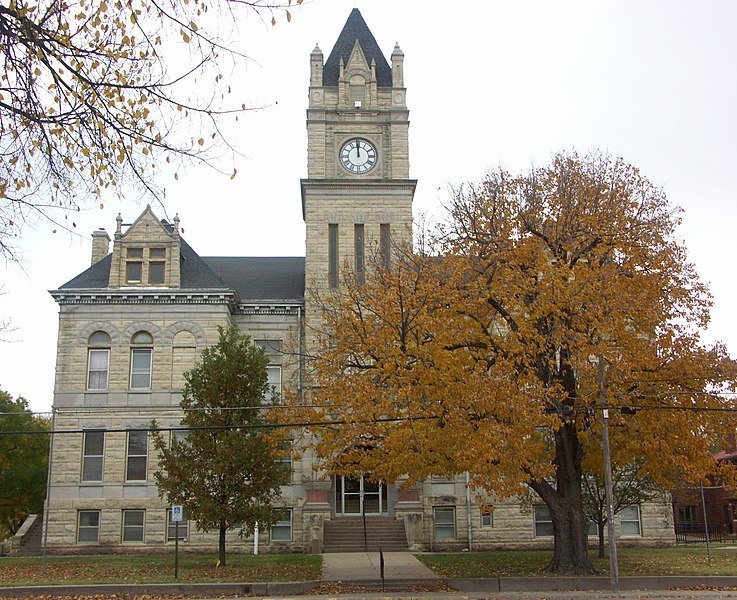
The judge who authorized the illegal warrant under which police raided the Marion County Record happened to be a lawyer. But she didn't have to be. Kansas and other states allow non-lawyer judges, often called magistrates or justices of the peace, to decide matters with important press freedom implications.
Laws are only as good as the judges tasked with upholding them. And lately, journalists across the U.S. have learned that the legal protections they thought they could rely upon often exist only on paper. But what they may not realize is that, in many states, some judges deciding their constitutional rights aren’t even required to go to law school.
The August raid of the Marion County Record, purportedly to investigate whether a journalist illegally accessed driving records, is illustrative. The warrant application failed to mention the federal law -– the Privacy Protection Act of 1980, or PPA — that bans newsroom searches except in limited, inapplicable circumstances. It also ignored Kansas’ shield law and the federal Drivers Privacy Protection Act, or DPPA, expressly allowing records to be used for research.
The judge who approved the warrant anyway, Laura Viar, is now the subject of a judicial ethics complaint, while journalists investigate her background and potential conflicts. Viar was chosen by a local “nominating commission” to serve as a “magistrate” judge in November 2022 — less than a year before she issued the warrant, which was withdrawn by county attorneys within days.
Viar happens to be a lawyer — but she didn’t have to be in order to become a magistrate judge. In Kansas, anyone with a high school degree who passes an exam can take the bench and issue search warrants. Local magistrate judges — known as justices of the peace in some states — generally serve rural areas, which are often news deserts (fortunately, Marion is an exception). That means the local press is unlikely to serve as a check to stop nominations of unqualified judges. And when those judges enter unconstitutional rulings, struggling outlets may not have the means to appeal.
The Marion ordeal led lawmakers in Kansas to introduce a bill to prevent magistrates from issuing warrants. Hopefully it succeeds, but Kansas is far from the only state that empowers magistrates to trample on press freedoms.
In Arizona this April, Judge Amy Criddle issued a restraining order against journalist Camryn Sanchez at the request of a state senator. The senator, Wendy Rogers, claimed Sanchez stalked her by knocking on her door while investigating whether she lives in her district. In what should have been a glaring red flag, Rogers told the judge her goal was for the reporter to “learn their lesson and then leave the situation alone.”
Like Viar, Criddle is a lawyer, making her ridiculous restraining order all the more inexcusable. But the state leaves it up to cities to decide whether to require municipal judges like Criddle — who have the power to issue warrants, as well as restraining orders — to be lawyers.
And there’s more: Sanchez’s recourse following Criddle’s order was to appeal to another municipal judge, Howard Grodman. Fortunately, Grodman, also a lawyer, got it right and struck down the restraining order, correctly citing its obvious constitutional problems. But Arizona law makes it entirely possible that the next journalist hit with an unlawful restraining order or warrant will have to go through two unelected nonlawyers before they can get in front of a judge with some understanding of the First Amendment (not to mention obscure laws, like the PPA and DPPA, that many experienced lawyers haven’t even heard of).
Other states where any adult resident is eligible to issue warrants and restraining orders against journalists (or anyone else) include Texas and Mississippi. Still others go even further, allowing nonlawyer judges to convict and sentence defendants charged with misdemeanors. That, too, should concern journalists, especially considering the recent convictions of two reporters for violating a park curfew by recording newsworthy police conduct at night.
That said, you may have noticed that the judges discussed in this article are lawyers, even if they’re not required to be. And plenty of other legally trained judges have issued blatantly unconstitutional orders against journalists. Take, for example, the North Carolina judge who recently seized a reporter’s notes and gagged her from reporting a juvenile court hearing she lawfully attended. Law school didn’t stop that judge from ignoring the 1977 Supreme Court case that pondered the exact same scenario and sided with the journalist. Or, consider the St. Louis judge who recently barred a newspaper from publishing documents it lawfully downloaded from the court’s website, again in defiance of clear Supreme Court precedent.
Clearly, then, eliminating nonlawyer judges from the lower courts won’t solve all the judiciary’s problems. Judges don’t grapple with journalists’ rights every day, and even experienced trial judges need training on how to do so. Plenty of lawyers, after all, go their whole careers without litigating a case involving journalists.
But proposals like the one in Kansas to at least require a law degree are a good place to start and will encourage further scrutiny of judicial nominees’ qualifications to decide constitutional questions. And, hopefully, they can prompt some much-needed conversation around why judges — lawyers or not — can’t seem to get press freedom right these days.
